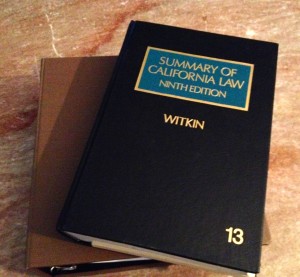Causation in Attorney Negligence: Proving “Fault”
A plaintiff client cannot win a lawsuit for attorney negligence without proving that the attorney’s alleged malpractice was the “legal cause” of the plaintiff’s damages, loss, or injury.
Unless the (former) client proves causation as a matter of law, a malpractice actions cannot prevail.
Today’s “Malpractice Monday” focuses on this critical element, and how to prove it.
HOW DOES A PLAINTIFF PROVE CAUSATION IN A MALPRACTICE ACTION AGAINST AN ATTORNEY?
In a malpractice action, the plaintiff must prove either:
1. The attorney’s negligence was a “concurrent, independent” cause of the plaintiff’s damages, or
2. “But for” the attorney’s negligent act or omission, the plaintiff would not have suffered the relevant damages or injury.
Generally, “causation” is an issue of fact, decided by the jury (or, in the case of a bench trial, the judge using the appropriate standards for determining factual issues). However, even in jury trials, the judge may rule on the question of causation if the issue is proven (or not proven) to such a strong degree that reasonable minds could not differ as to the ruling.
Expert testimony is normally inadmissible on the issue of causation. Experts can testify about whether or not the attorney acted negligently, to establish relevant standards of care for practitioners in the area at issue, and on the subject of damages, but courts have ruled that expert testimony on the issue of causation itself treads too closely upon the jury’s role as the trier of fact in a negligence action.
THE “BUT FOR” TEST: DIRECT CAUSATION
Under this test, the plaintiff must prove that the attorney’s negligent act or omission actually caused the client to suffer injury or damages. The attorney’s wrongful act (or omission) doesn’t have to be the only cause of the client’s harm (or the only reason why the client suffered injury) as long as the lawyer’s actions were an actual, documentable cause of the client’s harm.
Normally, this means the plaintiff needs to present sufficient factual evidence to demonstrate that if the negligent act or omission had not occurred, the plaintiff would have either prevailed or obtained a more favorable outcome (meaning better settlement terms or a judgment/higher judgment in the plaintiff’s favor) in the action or transaction where the attorney’s malpractice allegedly occurred.
THE “SUBSTANTIAL FACTOR TEST” FOR CASES INVOLVING CONCURRENT INDEPENDENT CAUSATION
Sometimes, a plaintiff’s injury results from multiple, independent factors which act concurrently to create injury or damages. When this occurs and where each of the independent factors, examined alone, would have been sufficient to cause the plaintiff’s harm, the plaintiff may prove causation using the “substantial factor” test.
In these cases, the plaintiff must prove that the attorney’s wrongful conduct was both a “material element” and a “substantial factor” in causing the relevant damages, and that the damages would have occurred even in the absence of the other concurrent causes. In other words, the plaintiff still must prove that the attorney’s conduct was sufficient, by itself, to cause the damages.
Where the attorney’s wrongful conduct would not have causes the plaintiff’s harm in the absence of the other, concurrent factors (in other words, when the attorney’s conduct was merely one part of a “snowball effect” that ultimately resulted in harm), then the normal “but for” test applies.
NEVER ATTEMPT TO EVALUATE CAUSATION WITHOUT THE ASSISTANCE OF EXPERIENCED COUNSEL
“Causation” often seems “obvious” to plaintiffs, particularly plaintiffs who have suffered injury or loss in a legal matter. Do not use this article–or any website or other informational source–to evaluate a claim of attorney malpractice or your possible legal claims. If you believe you have a claim against your attorney (or former attorney) for malpractice, don’t delay. Consult an experienced attorney promptly to obtain a formal evaluation of your claims; failure to act may cost you, both legally and financially.
















